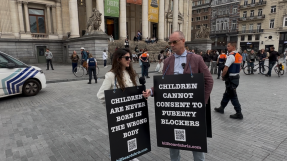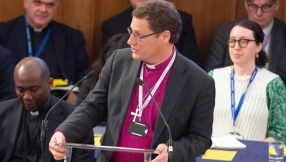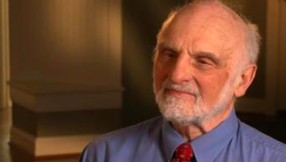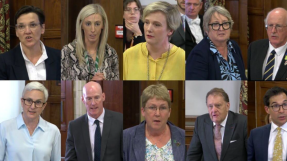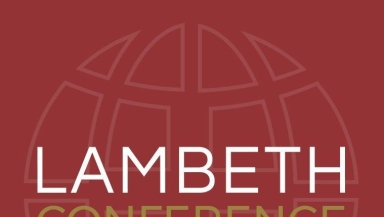
Today at the Lambeth Conference two very different visions of the future of the Anglican Communion have been put forward: one focused primarily on the physical needs of the world, the other on the spiritual health of Communion.
At the official press conference, the Archbishop of Canterbury set out what he hoped would happen as a result of bishops and spouses being "refreshed" by the conference.
He said, "You will see a remobilisation of the Anglican Communion, which includes the largest and oldest women's group in the world, the Mother's Union, and that will be seen in work at the local level on reconciliation.
"It will be seen in lobbying and activism around climate change, as well as local activity; it will be seen in greater opportunities for education for people in the poorest parts of the world being educated better in the most advanced technologies and science in the world through the Anglican Communion's worldwide education work.
"It will be seen in people taking risks to make peace in the middle of wars as is already happening; and I think it will be seen in the capacity of the Anglican Communion to act over and despite its many difference, as an example to a world that is less and less capable of doing that."
An hour and a half later, the Most Rev James Wong, Archbishop of the Province of the Indian Ocean, challenged the viability of that vision, saying, "We cannot mend a broken world when the Anglican Church is so broken and fractured."
That brokenness is clear for all to see: a third of bishops have stayed away from the Lambeth Conference and it is claimed that almost a third of those present will abstain from taking the Eucharist – even though it is the sacramental sign of unity.
It is not clear in what sense, if any, a Communion that does not share communion can be said to share such unity.
Sitting alongside him, Archbishop Justin Badi, Chairman of the Global South Fellowship of Anglicans (GSFA), set out their vision to "bring back the authority of the Scriptures into the church, into the Communion".
The bishops of the GSFA will be tabling their own resolution to affirm Lambeth I.10, which Archbishop Justin Badi said had been "swept under the carpet" by the revision of the Call on Human Dignity.
Bishops will be invited to sign it and then it will be presented to the Archbishop of Canterbury, and he will be invited to add his signature to it.
The GSFA represents about 75 per cent of those worshipping in the Anglican Communion. It is to these Provinces that the organisers of the Lambeth Conference look to for good news stories of growth and hope.
The question is: how they will respond to the Global South's concerns for the Communion.
Archbishop Badi, spoke for them all when he said, "Today in Canterbury, we may be gathered together, but we most certainly cannot 'walk together' until provinces which have gone against Scripture – and the will and consensus of the bishops - repent and return to orthodoxy. The Communion is not in a healthy condition at present and only major surgery will put that right."










